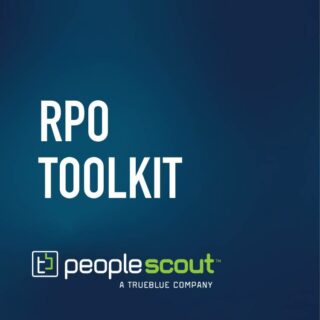Candidate experience is becoming a popular topic of discussion in the talent acquisition and recruiting community—with good reason. According to a CareerBuilder survey, 78 percent of candidates say the overall candidate experience they receive is an indicator of how a company values its staff. What’s more, the same survey found that 86 percent of job seekers believe employers should treat candidates with the same respect as current employees.
The results of CareerBuilder’s survey illustrate that the lines between the candidate and employee experience are blurring, making it critical for organisations to strengthen their candidate experience. In this post, we outline the importance of improving the experience of your candidates and how organisations can streamline the hiring process.
What is the Candidate Experience, and Why Does it Matter?
In order to build a strong candidate experience, it is important to understand what is and why it matters.
So, what is the candidate experience?
The candidate experience is the sequence of interactions a job candidate has with an organisation throughout the recruiting and hiring process. These interactions can include correspondence that a candidate receives from an organisation’s HR department, recruiters and its software systems.
Common candidate experience touch points include:
- An organisation’s career site
- Job advertisements
- The online job application process
- Any communication from an applicant tracking system
- An organisation’s interview process
- Any correspondence with HR professionals, team members or leadership
- Notifications about a candidate’s application status
- Candidate rejection letter or job offer
What is a positive candidate experience?
According to Talent Board’s CandE Research Report, candidates rated “communication” as the number one way to engage talent. So, organisations looking to craft a positive candidate experience should communicate clearly and honestly with job seekers to create the type of candidate experience they value.
A positive candidate experience meets the following standards:
- Communicates realistic expectations for the job and work environment
- Clearly communicates an organisation’s employee value proposition
- Outlines all of the employment details to candidates upfront
- Provides an easy and mobile-friendly application process
- Respects a candidate’s time at all stages of the application process
- Provides a pleasant and smooth interview experience
- Seamlessly transitions selected job applicants into new employees
- Maintains a kind and respectful process for rejecting job applicants
What are the Benefits of Improving Candidate Experience?
Improving candidate experience not only benefits candidates and job seekers, but it can also have a positive impact on an organisation’s workforce. Below, we outline three ways a strong candidate experience improves the overall talent acquisition process.
Improve applicant retention
According to research conducted by Indeed, applications with 45 or more screener questions lose 88.7 percent of their potential applicants to application abandonment. Improving the candidate experience often begins with refining the application process. A short and streamlined job application process will increase the likelihood of job seekers finishing job applications, thereby increasing an organisation’s applicant pool.
Create a better first impression
Research from labor economists Lawrence Katz and Alan Krueger suggests a growing interest in joining the gig economy. The number of Americans working these “gigs” has risen from 10.1 percent a decade ago to 15.8 percent in 2015. Nearly 40 percent of workers in these jobs have a bachelor’s degree or higher. This means that organisations are not only in a battle with competitors for skilled talent but also with the candidates who may want to work for themselves.
To win the war for talent, organisations need to see candidate experience as more than just a part of the recruiting process; it is also a sales tool that can help win over top talent. A job application is often the first interaction a candidate has with an organisation. So, making a great first impression on top talent with a superior candidate experience will help organisations differentiate themselves and stand out as great places to work.
Increase brand awareness
The candidate experience affects more than just job applicants; it also plays a significant role in how consumers view an organisation as a whole. If an organisation offers an exceptional candidate experience, candidates are more likely to share the experience with colleagues and write about it online. What’s more, a survey conducted by Software Advice found that 71 percent of candidates are more likely to purchase from a company they feel treated them well throughout the recruiting process.
How Technology Can Help Improve the Candidate Experience
Technology continues to shape the way job seekers search for work and how organisations find and hire qualified talent. The rise of social and professional networking sites, mobile devices, job boards and online applicant systems means that creating a meaningful candidate experience often begins with crafting a technology-first approach. Below we list three ways in which organisations can use technology to improve their candidate experience.
Offer a mobile-friendly candidate experience
Research conducted by Indeed found that 78 percent of Millennials, 73 percent of Generation Xers and 57 percent of baby boomers conduct job searches from their mobile devices. This means that organisations looking to improve their candidate experience should look to create a mobile-friendly recruiting environment for job seekers. Organisations should make sure that their career website and other resources candidates may need while applying for job openings are mobile-friendly.
Affinix™, PeopleScout’s proprietary talent technology, is designed as a mobile-first platform for both candidates and recruiters, ensuring seamless engagement from any mobile device at any time throughout the application, scheduling and screening process.
Quick questions to ask yourself to improve the mobile candidate experience:
- Is career-related text and content easily readable on mobile devices?
- Are job pages optimised for better visibility in mobile search?
- Is navigation of the career site and job application simple on mobile devices?
- Will candidates have to go through trial and error to complete applications on mobile devices?
Clear Communication
Establishing timely and clear communication between candidates and recruiters is essential for developing a positive candidate experience. However, many candidates are left without feedback or status updates on their application. In fact, a Talent Board report found that 47 percent of candidates were still waiting to hear back from employers more than two months after they applied.
The right technology platform can help by sending automated messages to candidates via email or chatbot technology letting them know their application status. You can even craft messages letting a candidate know if they did not get the job. While missing out on a job is never pleasant, receiving prompt feedback communicates to a candidate that their application and time were respected.
Social Recruitment Marketing
Enhancing the candidate experience also means reaching candidates where they are. According to Social Talent’s 2016 Global Recruiting Survey, 37 percent of survey respondents said that social media is the primary source of finding candidates. This shift towards a digital hiring model has seen the traditional résumé be displaced by the online footprint of candidates which showcases their skills and experiences.
PeopleScout’s Affinix platform can help organisations reach digitally native candidates with customised ads, optimised job descriptions, personalised landing pages, career portals and recruitment marketing that elevates job postings with robust content and campaign management.
Conclusion
Learning from past mistakes and successes is essential to improving the experiences of your candidates. While there is no such thing as a perfect hiring process, learning and evolving processes and procedures will improve an organisation’s ability to attract great talent and retain the strongest workers.




